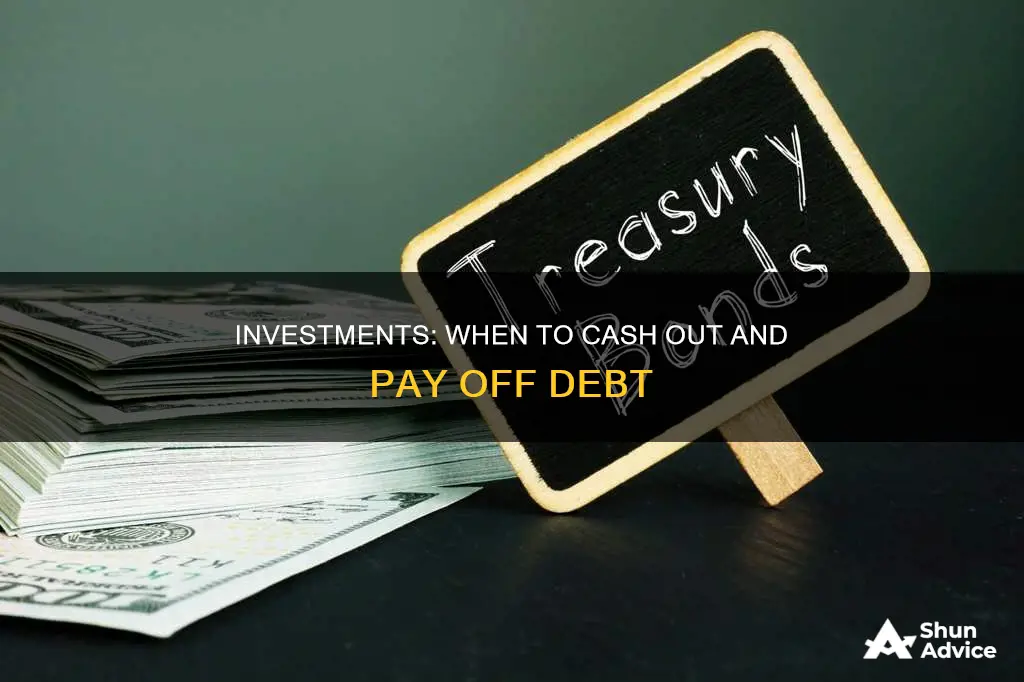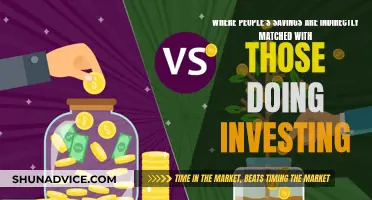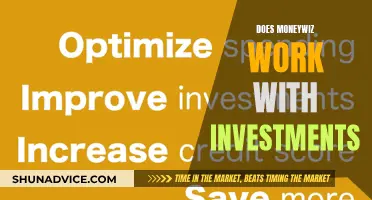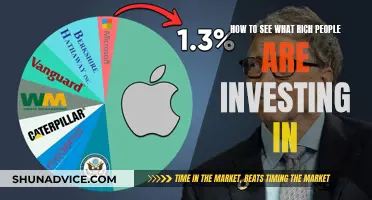
Whether you should use your investments to pay your bills depends on your financial situation and the type of debt you have. If you have high-interest debt, such as credit card debt, it is generally recommended to use your investments to pay it off. This is because the interest on credit card debt can often be higher than what you can earn through investments. However, if you have low-interest debt, such as a mortgage or student loan, it may be better to invest your money, as the returns on your investments may be higher than the interest on your debt.
It is also important to consider the opportunity cost of using your investments to pay off debt. By withdrawing money from your investment portfolio, you may be giving up potential investment gains. Additionally, selling your investments to pay off debt may trigger capital gains tax, which can eat into your returns. Therefore, it is generally recommended to avoid using your retirement accounts to pay off debt, as early withdrawals may incur penalties and taxes.
There are alternative options to consider before using your investments to pay off debt. This includes pausing contributions to your investments and redirecting the cash flow towards paying off debt, or using a line of credit from your investment portfolio to access funds without triggering taxes.
Before making any financial decisions, it is important to carefully consider your options and seek professional advice where necessary.
| Characteristics | Values |
|---|---|
| Should you use investments to pay bills? | It depends on the type of debt and investment. |
| Types of debt | High-interest debt (e.g. credit card debt) vs. low-interest debt (e.g. mortgage, student loans, auto loans) |
| Interest rates | If the interest rate on your debt is higher than the return on your investments, it may be better to pay off the debt first. |
| Investment volatility | Investments can be volatile, with potential for gains or losses depending on the market. |
| Risk tolerance | Consider your risk tolerance; investing may be more suitable if you are comfortable with market volatility. |
| Credit score | Paying off debt can improve your credit score, which may be beneficial when applying for future loans. |
| Emergency fund | Consider building an emergency fund before investing; this can provide financial security and help you avoid debt in the future. |
| Investment vehicles | Compare the potential returns of different investment vehicles (e.g. stocks, bonds, mutual funds) with the interest rates on your debt. |
| Alternative options | Explore alternative options such as debt consolidation loans or balance transfer credit cards to manage your debt more effectively. |
What You'll Learn

Paying off high-interest debt
High-interest debt, such as credit card debt, can be challenging to pay off due to the monthly finance charges that eat up your minimum payment, resulting in only a small reduction in the balance each month. The longer it takes to pay off this type of debt, the more you spend on interest, which can significantly impact your financial stability and ability to achieve important milestones like buying a house or retiring.
Ask for a Lower Interest Rate:
Creditors may be willing to lower interest rates, especially if you have a history of on-time payments. If you have received offers from competing card issuers with lower rates, use them as leverage when negotiating with your current credit card company.
Transfer the Balance to a Low-Interest Rate Credit Card:
If you have good credit, consider transferring your balance to a new credit card with a lower interest rate or a 0% APR (annual percentage rate) introductory period. This will allow you to pay down debt without incurring additional interest during the promotional period. Be mindful of balance transfer fees, which typically range from 3% to 5% of the transferred balance.
Pay More Than the Minimum Amount Due:
Paying only the minimum required amount will usually keep you in debt for longer. To accelerate debt repayment, commit to paying more than the minimum each month. This will help reduce your principal balance, resulting in lower interest charges over time.
Lower Your Expenses:
Review your budget and identify areas where you can cut back on spending. For example, you can reduce entertainment costs by cancelling unnecessary subscriptions, cutting back on dining out, or disconnecting your cable service. These small changes can free up extra money that can be allocated towards debt repayment.
Increase Your Income:
In addition to reducing expenses, focus on boosting your income. This can be achieved by asking for a raise, finding a higher-paying job, selling unused items, or taking on freelance work or a second job.
Pay Off the Card with the Highest Interest Rate First:
If you have multiple credit cards with balances, prioritize paying off the card with the highest interest rate first. This approach, known as the "debt avalanche method," ensures that you tackle the debt that is growing the fastest due to interest charges.
Get Credit Counseling:
Consider seeking help from a certified credit counselor, who can assess your debt situation and enroll you in a debt management plan (DMP) if appropriate. A DMP involves negotiating with creditors to lower your interest rates and monthly payments, helping you become debt-free faster.
Remember, while it may be tempting to use your investments to pay off high-interest debt, it is generally recommended to avoid doing so unless the interest rate on the debt exceeds the potential returns on your investments.
The Mortgage and Investment Balancing Act: Dave Ramsey's Take
You may want to see also

Pros and cons of selling investments
Pros:
- If you have high-interest debt, such as credit card balances, it is a good idea to take measures to address that debt. As CPA and senior product specialist Tony Molina advises, if you are paying 20% interest on credit card debt, you would need to make at least 20% on your investments to cover that interest cost.
- If the interest rate on your debt is higher than 4%, it becomes harder for your investment gains to overcome the cost of interest. This is a common industry rule of thumb, according to CFP and Moneta Group partner Lynn Dunston.
- If you have investments that are not in a retirement account, such as stocks, bonds, or cryptocurrency, cashing out can be a way to make a big dent in your debt.
Cons:
- Selling investments to pay off debt can have important financial implications, such as capital gains tax.
- Selling investments may not be the best option if you have other sources of funds or can borrow against your brokerage account.
- If you are selling a stock that has gained value, you will need to pay a capital gains tax. Be aware of different tax rates for long-term vs. short-term capital gains. Consult a tax advisor for guidance.
- If you cash out of a tax-deferred account, such as an IRA or 401(k), before the age of 59 1/2, you may owe an additional 10% tax on early withdrawals, plus ordinary income tax.
- It is generally recommended to avoid selling investments to pay off debt, especially if there are other alternatives available.
Invest Smart: Balance Risk and Reward
You may want to see also

The psychological benefits of paying off debt
Paying off debt can have a range of psychological benefits, from reducing stress and improving health to boosting self-confidence and strengthening relationships. Here are some of the key advantages:
- Reduced stress and improved health: Owing a large sum of money is one of the most stress-inducing life events, often causing psychological strain and worry-induced depression, anxiety and stress. Paying off debt removes this burden and the associated fear and stress, leading to improved mental and physical health.
- Increased self-confidence: Debt can carry a negative stigma and affect self-esteem. Eliminating debt can boost self-confidence and empower individuals to share their debt-free stories with others.
- Freedom to pursue life goals: Massive debt can make people feel like their lives are on hold. Clearing debt provides the freedom to pursue important life goals such as getting married, starting a business, or buying a home, without the burden of financial worries.
- Improved relationships: Financial difficulties can cause stress and tension in relationships. Paying off debt relieves this strain and encourages honest communication between partners. It can lead to stronger relationships and a more positive impact on children.
- Strength to avoid future debt: Successfully paying off debt can instil financial discipline and resolve to stay financially healthy in the future. This involves maintaining a tight budget and avoiding the temptation to fall back into old spending habits.
- Altered link between spending and happiness: Clearing debt can change an individual's perspective on the relationship between money and happiness. They may realise that experiences and memories, such as dinners with friends or weekend getaways, bring more lasting joy than material purchases.
The Early Payoff: Is it Wise to Settle Investment Property Loans Ahead of Time?
You may want to see also

When to prioritise investing over paying off debt
Whether to pay off debt or to invest is a common dilemma, and the answer depends on your financial situation and goals. Here are some scenarios where investing may take priority over paying off debt:
- Lower Interest Debt: If you have low-interest debt, such as a mortgage or student loan, investing may be a better option than paying it off early. This is because the potential returns from investing could outweigh the interest you are paying on the debt. For example, if you have a student loan with a 5.05% interest rate and you expect to earn more than that by investing, it may make sense to invest instead of paying off the loan early.
- Tax Benefits: In some cases, certain types of debt, like student loans and mortgage loans, offer tax incentives. The interest paid on these loans may be tax-deductible, reducing your taxable income for the year. Therefore, carrying this type of debt may provide some tax benefits that could make investing a more attractive option.
- Compounding Interest: Investing early and often can take advantage of compounding interest, which is when you earn interest on your initial investment, as well as the interest that your investment has earned. The earlier you start investing, the more time your money has to grow. For example, if you start investing $6,000 per year in a Roth IRA at age 25, assuming a 7% annual return, your money could grow to $1.28 million by the time you turn 65.
- Risk Tolerance: Your personal risk tolerance also plays a role in the decision. If you are comfortable with the potential volatility of investments and the possibility of losing money, then investing may be a better option than paying off low-interest debt. However, if the stress of debt keeps you awake at night, then paying off the debt may be a better choice for your peace of mind.
- Retirement Planning: While it is generally advisable to avoid bringing debt into retirement, finding a balance between paying off debt and investing for retirement is crucial. If your employer offers matching contributions to a retirement plan, such as a 401(k), it is recommended to contribute enough to qualify for the full match. This ensures that you maximise your retirement savings and take advantage of "free money" from your employer.
It is important to note that the above scenarios assume you are able to manage your debt payments and that your debt is not causing a significant financial burden. If your debt is impacting your ability to cover basic expenses or affecting your credit score, prioritising debt repayment may be more crucial.
LetGo: Why Venture Capitalist Investments?
You may want to see also

Alternative ways to pay off debt
There are several alternative ways to pay off debt without having to cash out your investments. Here are some strategies and tips to help you pay off your debt:
- Assess your debt load: Understand whether you have too much debt and decide if you can use a DIY strategy for repayment or should consider debt relief options.
- Debt snowball: Focus on paying off your smallest balance first. Put all the extra money you can towards that account while continuing to pay the minimums on the others. Once that debt is cleared, add the amount you were paying to the minimum payment on the next largest debt.
- Debt avalanche: Focus on the debt with the highest interest rate first (while still paying the minimums on the others), then move on to the next highest rate, and so on. This strategy could save you money in the long run by getting rid of the most expensive debt first.
- Focus on high credit utilisation: Pay down your credit cards with the highest credit utilisation (the highest percentage of the credit limit being used). This can help improve your credit score.
- Debt consolidation: Take your high-interest debt, such as credit card balances, and consolidate them into one monthly payment, ideally at a lower interest rate. This can make your payments more manageable and shorten the time it takes to pay off your debt. Options for debt consolidation include a balance transfer credit card or a debt consolidation loan, borrowing from your 401(k), or using home equity. However, note that the last two options put your retirement savings and home at risk.
- Budgeting: Get clear on your budget to help you cut down debt. Choose a budgeting system that works for you, such as the zero-based approach, the envelope system, or the 50/30/20 budget. Use technology to make budgeting easier, such as apps that let you track your financial accounts, categorise your expenses, and automate your payments.
- Negotiate your bills: Find ways to reduce your monthly bills by contacting your service providers and negotiating a better rate. You can also try switching providers to get a better deal.
- Increase your income: Consider getting a part-time job, selling gently used or unused items, or using your skills for freelance work. A side hustle can help fuel your progress in paying off debt.
- Debt relief: If budgeting, negotiating payments, and increasing your income are not enough, consider debt relief options. This can help you change the amount or terms of your debt to reduce your financial burden. Options include debt management, which involves working with a credit counselling agency to pay off your debt at reduced interest rates or with waived fees, and debt settlement, which involves negotiating with creditors to settle your debt by paying a lump sum that is less than what you owe.
Renting: A Cost or an Investment?
You may want to see also
Frequently asked questions
It depends on the type of debt and the interest rate. If you have high-interest debt, such as credit card debt, it is generally recommended to prioritize paying off that debt over investing. However, if your after-tax return on investments is greater than your after-tax cost of debt, then investing may be a better option.
Instead of using your investments, you can consider pausing contributions to your investments and redirecting that cash flow towards paying off your debt. You can also look into balance transfer credit cards, which offer a 0% intro APR period, or taking out a loan through a portfolio line of credit to avoid triggering taxes on your investments.
Yes, it is generally recommended to avoid using your retirement accounts, such as a 401(k) or Roth IRA, to pay off debt. Withdrawing from these accounts early can result in penalties and taxes, and it can impact your long-term financial goals.
There are several strategies you can consider, such as using coupons and rebates, rounding up your purchases and investing the difference, reducing incidental expenses, utilizing card rewards, monetizing hobbies or side hustles, and taking advantage of tax deductions and credits.







